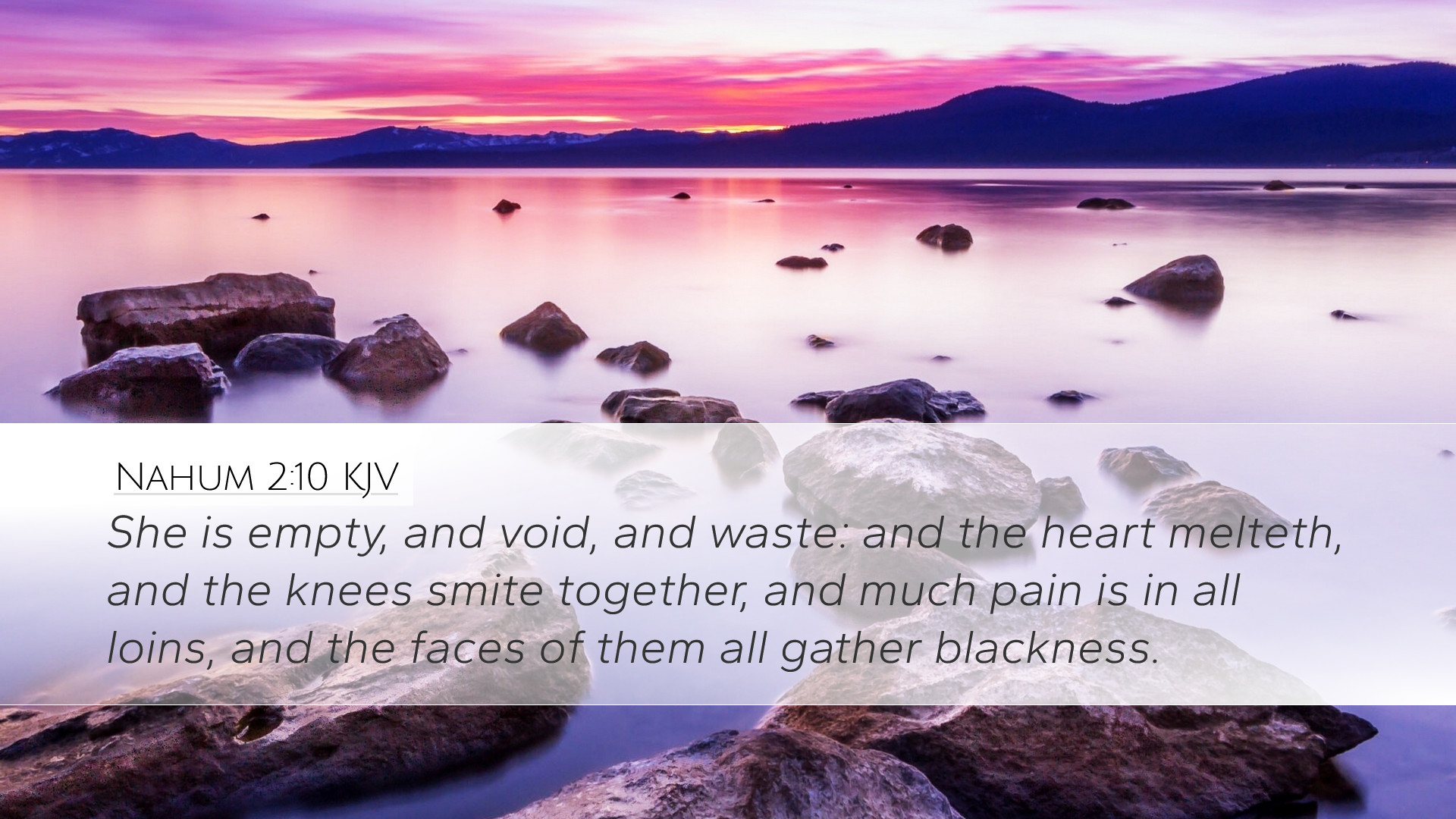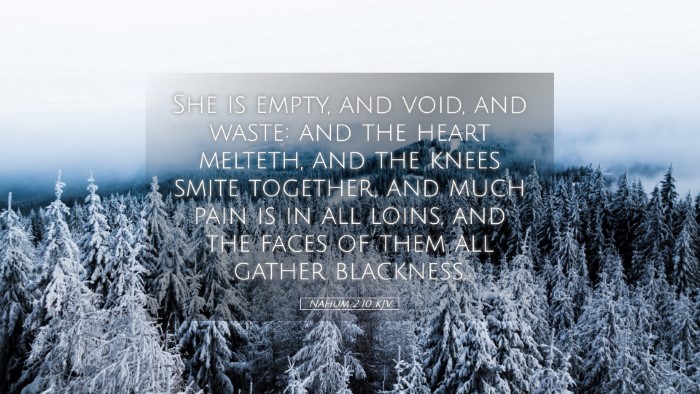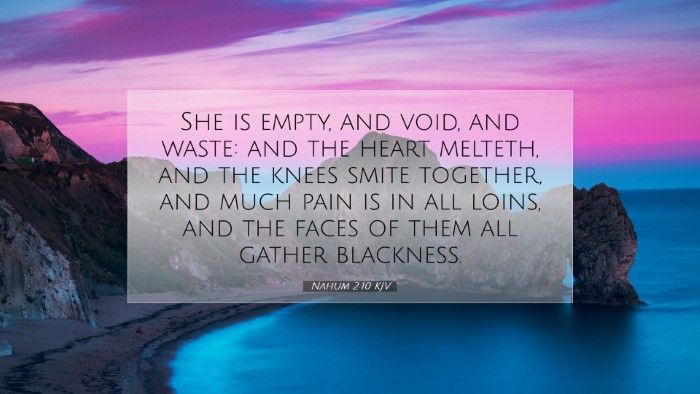Old Testament
Genesis Exodus Leviticus Numbers Deuteronomy Joshua Judges Ruth 1 Samuel 2 Samuel 1 Kings 2 Kings 1 Chronicles 2 Chronicles Ezra Nehemiah Esther Job Psalms Proverbs Ecclesiastes Song of Solomon Isaiah Jeremiah Lamentations Ezekiel Daniel Hosea Joel Amos Obadiah Jonah Micah Nahum Habakkuk Zephaniah Haggai Zechariah MalachiNahum 2:10
Nahum 2:10 KJV
She is empty, and void, and waste: and the heart melteth, and the knees smite together, and much pain is in all loins, and the faces of them all gather blackness.



Commentary on Nahum 2:10
The Book of Nahum presents a vivid poetic indictment against Nineveh, the capital of Assyria, detailing the inevitable downfall of this once mighty empire. Nahum 2:10 encapsulates the devastation and emotional turmoil that comes with God's judgement. This commentary draws from the insights of esteemed public domain commentaries, providing a comprehensive reflection on this verse.
Verse (Nahum 2:10, KJV): "She is empty, and void, and waste: and the heart melteth, and the knees smite together, and much pain is in all loins, and the faces of them all gather blackness."
Exegesis of Nahum 2:10
This verse serves as a stark proclamation of the desolation awaiting Nineveh. Each phrase reveals the depth of the city's impending ruin.
Theological Insights
Nahum 2:10 highlights several key theological principles relevant to understanding divine justice and human accountability.
Historical Context
Understanding Nahum within its historical context enriches the comprehension of its themes.
Application for Today
Nahum 2:10 has implications for contemporary readers, especially for pastors, theologians, and scholars.
The power of Nahum 2:10 lies not only in its vivid imagery but also in its deeper theological and emotional dimensions. It serves as a piercing reminder of the reality of divine judgement, the psychological impacts of sin, and the unchanging hope for those who seek God's mercy. As we reflect on this passage, may we be encouraged to live lives of integrity, acknowledging the weight of sin while also embracing the grace found in repentance.